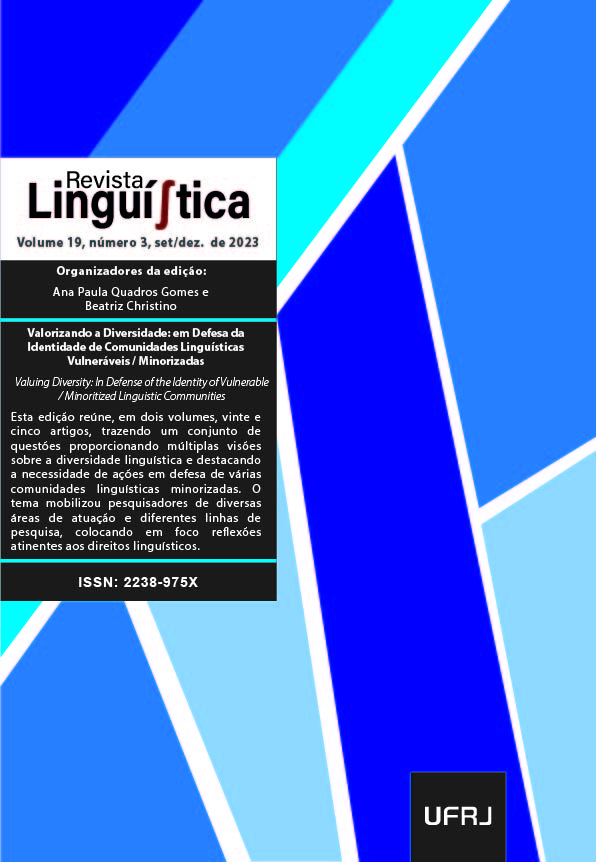Communication, citizenship and indigenous languages in Wayuri informative report
DOI:
https://doi.org/10.31513/linguistica.2023.v19n3a60324Keywords:
cidadania comunicativa, etnomídia, comunicação comunitária, línguas indígenas, Rio Negro - Amazônia.Abstract
In this text, we present an approach to Wayuri Report, from the Rio Negro Indigenous Communicators Nework – Wayuri (2017-), from the perspective of indigenous digital (Barbosa, 2019) and citizen ethnocommunication, arguing that it is a successful contemporary experience of community communication (Miani, 2011). The Report can be seen as an informative journalist product, however, it presentes traits that allows us to understand it as an expanded experience and practice in relation to conventional jornalism rules (TUPINAMBÁ, 2016) from the perspective of ethnomedia (Renata Tupinambá, 2016; Kaseker E Ribeiro, 2018; Santi E Araújo, 2022) and practiced communicative citizenship (Costa Filho, 2021). Based on Maldonado, Carneiro and Anápuáka Muniz Tupinambá Hã Hã Hãe (2021) we understand that the Wayuri Network and its Report are part of a scenario marked by the existence of a “potent Brazilian indigenous ethnomedia ambience” that favours the struggle by including in elaboration, in the process and in the result, indigenous logics in their diversities, with the presence of languages and other indigenous elements of the Rio Negro’s territory.
Downloads
Downloads
Published
Issue
Section
License
Copyright (c) 2024 Revista Linguí∫tica

This work is licensed under a Creative Commons Attribution-NonCommercial 4.0 International License.
Authors who publish in the Revista Linguí∫tica agree with the following terms:
The authors maintain their rights, ceding to the journal the right to first publication of the article, simultaneously submitted to a Creative Commons license permitting the sharing with third-parties of published content as long as it mentions the author and its first publication in the Revista Linguí∫tica.
Authors may enter into additional agreements for the non-exclusive distribution of their published work (for example, posting in online institutional or non-profit repositories, or book chapters) so long as they acknowledge its initial publication in the Revista Linguí∫tica.

The journal Revista Linguí∫tica is published by the Post-Graduate program in Linguistics of UFRJ and employs a Creative Commons - Attribution-NonCommercial 4.0 International (CC-BY-NC).









